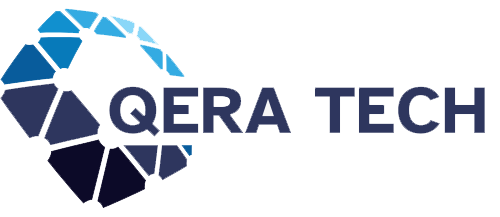Why 2025 Is the Year of AI for Small Businesses
Running a small business in 2025 feels a little like running a marathon while juggling. Customer expectations are sky-high, competition is cutthroat, and technology evolves faster than most founders can keep up. In that chaos, one thing has become clear: AI is no longer a luxury. It’s a survival tool.
What’s different today is accessibility. A decade ago, artificial intelligence felt like something reserved for Silicon Valley giants with endless budgets. But now? AI has been packaged into affordable, easy-to-use tools that any café owner, consultant, or online shop can adopt.
The big question for entrepreneurs isn’t “Should I use AI?” anymore. It’s “Which AI tools will actually help my business grow?”
That’s where this guide comes in. We’ll explore the best AI tools for small businesses 2025, breaking them down by categories — from marketing to finance, customer service to HR — while also sharing real-world examples of how these tools are helping small businesses save time, cut costs, and boost customer loyalty.
Why AI Tools Are Transforming Small Businesses in 2025
Before we dive into the tools themselves, let’s pause and look at why AI has become so central for small enterprises.
For one, time savings are massive. Repetitive tasks like scheduling, reconciling invoices, or sending follow-up emails now take minutes instead of hours. AI also delivers cost reduction — replacing the need for entire external teams in areas like content creation or customer support.
But perhaps the biggest shift is in decision-making. Instead of relying on guesswork, small business owners can now pull up real-time dashboards powered by AI analytics. Suddenly, data isn’t just for big corporations; it’s in every founder’s pocket.
Here’s what really stands out, though: AI doesn’t kill creativity — it amplifies it. By automating the grunt work, it gives entrepreneurs space to focus on strategy, innovation, and what truly matters: customers.
Marketing and Content Creation: Fueling Growth with AI
Ask any founder what drains their time, and content will be near the top. Blog posts, product descriptions, newsletters, Instagram captions — it’s endless. That’s why some of the best AI tools for small businesses in 2025 live in the marketing space.
-
Jasper AI has become a go-to for long-form blogs, ad copy, and emails. A bakery in London uses it to create weekly newsletters, shaving off 10+ hours a month while keeping their tone consistent.
-
Copy.ai is perfect for quick snippets like social media captions or product blurbs.
-
Writesonic leans into SEO-driven content, ensuring your posts actually rank on Google.
-
GravityWrite, a rising star, goes wide with 250+ templates covering everything from YouTube scripts to email funnels, plus multilingual support and AI-generated visuals.
The creative side of branding is also getting an AI makeover. Canva’s Magic Studio now transforms text prompts into professional layouts — whether it’s a flyer, pitch deck, or Instagram reel. Meanwhile, Looka offers full brand kits in minutes, and Designs.ai combines logos, videos, and copy into one suite.
For small shops or freelancers, this means no more waiting weeks for a designer. You can build and scale your brand identity instantly — and on budget.
Customer Service and Engagement: Always On, Always Listening
In today’s market, fast support isn’t optional. Customers expect answers now, even if you’re asleep. That’s why AI-powered chatbots and sentiment trackers have become essential.
Take Tidio’s Lyro chatbot: it resolves up to 64% of customer inquiries by pulling from your own FAQ data. A small e-commerce store can plug it into Instagram, WhatsApp, and their website, slashing response times without adding headcount.
On the higher end, Intercom’s Fin AI Agent is winning praise for tackling complex queries across industries, while Drift specializes in B2B lead qualification.
Customer sentiment analysis is another game-changer. Tools like Brand24 scan millions of sources in real time, flagging when reviews go south so you can intervene early. One restaurant chain using Brand24 cut their negative review lag by 60% — and saw happier customers as a result.
The key here isn’t replacing humans. It’s scaling your ability to listen and respond without burning out your team.
Financial Management: From Spreadsheets to Smart Systems
Money management has long been a headache for small business owners. Between invoicing, reconciling expenses, and forecasting cash flow, it’s easy to get buried. AI tools are finally lightening that load.
-
QuickBooks Online now has Intuit Assist, which learns your habits and suggests categories, reducing errors by up to 90%.
-
Xero uses smart bank rules to speed up reconciliations.
-
Zoho Books automates recurring invoices and integrates with tools like Booke.ai for reading receipts and flagging errors.
Forecasting is also sharper thanks to AI. Platforms like LivePlan and PlanGuru help small retailers predict demand shifts, while Fathom offers real-time dashboards. An e-commerce brand used LivePlan last holiday season to avoid stockouts — turning predictive analytics into actual profits.
For freelancers and consultants, these systems are lifesavers, cutting admin time by more than half while ensuring nothing slips through the cracks.
Sales and Lead Generation: Smarter Pipelines, Stronger Conversions
AI is creeping into every stage of the sales process — and for good reason. Traditional CRMs often feel like glorified spreadsheets. Modern AI-driven CRMs are more like assistants that anticipate your next move.
HubSpot CRM’s AI assistant drafts emails, suggests subject lines, and prioritizes leads. Zoho CRM’s Zia AI goes further, analyzing patterns to predict which deals are most likely to close. Meanwhile, Pipedrive nudges reps with personalized coaching based on their pipeline activity.
On the analytics side, tools like Clari and Salesforce Einstein forecast revenue, flag at-risk accounts, and recommend upsell opportunities. For small businesses, this translates to higher conversion rates without increasing outreach.
One SaaS startup using Zoho’s Zia AI reported a 20% boost in conversions in just one quarter. The secret wasn’t more hustle — it was smarter targeting.
Productivity and Workflow: Making Time Work for You
If there’s one thing every small business owner wishes for, it’s more time. AI scheduling and workflow tools are answering that call.
Motion builds your daily agenda automatically, while Clockwise protects blocks of focus time for deep work. Reclaim.ai syncs across calendars and even reshuffles tasks when deadlines shift.
On the documentation side, tools like Otter.ai transcribe meetings with summaries ready in minutes. Notion AI drafts content and organizes projects, while DocuSign Insight scans contracts for risks, cutting review time in half.
For a busy law office or consultancy, this isn’t just convenient — it’s a competitive edge. Less time buried in admin equals more time for clients.
Recruitment and HR: Scaling Teams Without Scaling Stress
Hiring has always been one of the toughest parts of growth. AI tools are finally easing the burden for small businesses.
Platforms like Manatal automate resume parsing and LinkedIn enrichment, cutting hiring time dramatically. HireVue uses AI video interviews to screen candidates, while Zoho Recruit handles everything from job posting to scheduling.
A 15-person startup using Manatal halved its hiring cycle — without an HR department. That kind of efficiency is critical when every hire counts.
E-Commerce Optimization: Personalization at Scale
For online stores, personalization is no longer a “nice to have.” Customers expect product recommendations that actually make sense.
Tools like Nosto and Clerk.io analyze browsing history, purchase data, and behavior to recommend the right products at the right time. Shopify’s built-in AI recommendation engine is also improving fast.
One Shopify store using Nosto boosted its average order value by 25% simply by personalizing suggestions. In an industry where margins are thin, that bump can make the difference between struggling and thriving.
Overcoming Challenges: The Reality Check
Of course, adopting AI isn’t as simple as flipping a switch. Small businesses often face three hurdles: learning curves, integration issues, and cost.
The solution? Start small. Test one tool in the area that’s bleeding you the most time or money. Track ROI carefully. Once you see results, expand gradually.
And don’t forget data privacy. Make sure any platform you adopt complies with GDPR or CCPA. Trust is priceless, and losing it over sloppy compliance can undo years of hard work.
Looking Ahead: Future AI Trends for Small Businesses
So, where does this all go from here? A few trends are already shaping the next wave:
-
Voice-activated AI will make managing tasks as easy as talking to your phone.
-
Emotional AI is emerging, allowing chatbots to detect tone and adjust responses in real time.
-
Real-time market research powered by AI will help small businesses pivot faster than ever.
-
And perhaps most importantly, the future is human + AI collaboration. Machines handle the repetitive tasks, while humans focus on creativity, empathy, and strategy.
Why This Matters for Every Small Business
When you step back, the story of AI in 2025 isn’t about robots taking over. It’s about giving small businesses the same firepower that big corporations have enjoyed for years.
Whether you’re running a neighborhood bakery, a consultancy, or an online brand, the best AI tools for small businesses in 2025 can help you cut costs, save time, and wow your customers.
Start small. Pick one tool maybe Jasper for content, Tidio for customer support, or QuickBooks for accounting. See the impact, and then expand.

